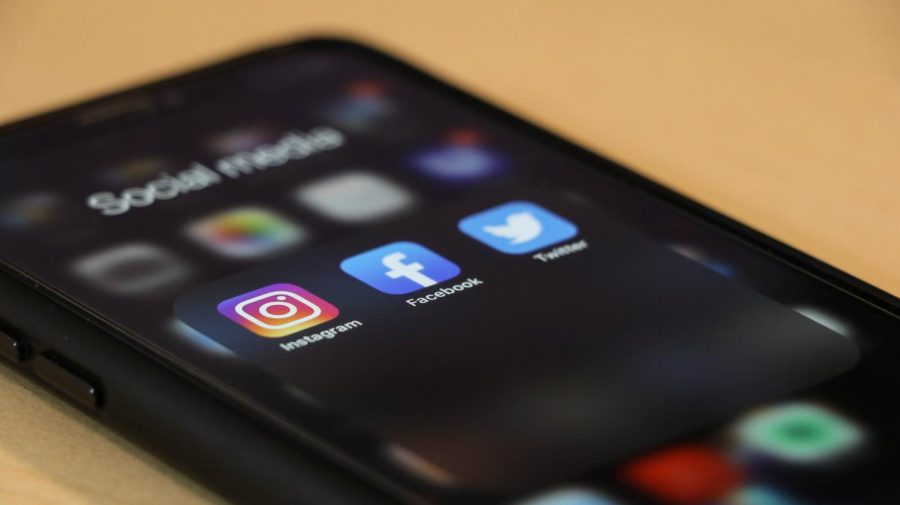Canceling cancel culture
Zaira Ahmad ’24 outlines the issues with cancel culture as it becomes a greater phenomenon in the new age of social media.
Imagine a moment in your life where you had made a mistake. You’d done something wrong and it needed to be corrected. But instead of people helping you realize your mistake so you could learn and grow, you’d gotten ruthlessly attacked. This scenario isn’t far from many individuals’ recent experiences, specifically those in the public eye.
“Cancel culture” is the occurrence in which an individual is publicly shamed, usually through social media, for saying or doing something problematic. These problematic acts can lie in certain subtopics such as homophobia, racism or sexism. By canceling an individual, they are shunned from social circles or the internet, resulting in their sudden loss of support and trust.
I remember moments in life where I found myself canceling others. Every time a new person was “canceled,” I would agree, clouding my judgment by the idea that the action was “good.”
Over the recent years, cancel culture has become an increasingly popular phenomenon. According to a survey of American voters between the ages 18 and 34, 55% say they have taken part in cancel culture. Social media users are constantly looking for the next person to cancel. In some ways, it even seems as if it’s a form of entertainment. The way cancel culture is used creates a negative atmosphere that is toxic and doesn’t allow individuals to acknowledge and grow from their mistakes.
Many recently “canceled” individuals have received public shame for the problematic things they may have said or done. When looking through the actions of canceled individuals, you may notice that it’s a mix of both old and recent remarks. Social media users will scourge the internet looking for anything that may be the least bit controversial to resurface.
Those who support these canceled individuals are left in an awkward place. Someone they’ve looked up to is no longer portrayed as a “good” person, so they’re left to decide whether or not they should keep supporting them.
During my times of canceling, I’d find myself in these awkward positions. I didn’t want to continue supporting someone who’d done wrong, but after following them for so long, I felt confused. Questions and remarks such as “How could they have done this?” or “I thought I knew them” popped into my head.
While you may believe that “cancel culture” helps hold people accountable, that may not be the case. For example, YouTuber Logan Paul was canceled for an extremely problematic video he posted in 2017. The video entailed Paul recording a dead body in Japan’s “suicide forest.” Rather than losing supporters, his Youtube subscriber count increased by 300,00 subscribers. While in some cases individuals may lose their entire careers, oftentimes getting canceled is only a minor setback or even something that furthers their careers.
In the 2019 Style article “Tales From the Teenage Cancel Culture,” a girl known by the nickname “L” described her own experiences with getting “canceled.” She discusses being shunned by many people in her school, even those she considered her closest friends. L relays how getting canceled at the age of 15 affected the way people perceive her now. “But social media’s existence has brought that into a place where people can take something you did back then and make it who you are now,” L said. “That sense of me being some sort of monster, terrible person, burden to everyone, has stayed with me to some extent.”
Even after learning from her mistakes, L was still portrayed with a negative image for years to come. This can affect how a person views themselves. While the individual may know they have grown, they may still find themselves feeling like a “bad” person.
The internet has slowly become a hateful place. 60% of social media users reported that it has negatively impacted their self-esteem. Comment sections are often filled with individuals ambushing each other. Social media users are frequently thrown hate for their posts. Direct messages are repeatedly filled with attacks. All these little things result in an environment that makes it difficult to grow.
Cancel culture makes it challenging for individuals to understand their mistakes. Consider this, if people in your class were throwing hate at you, rather than trying to understand what you did wrong, you would feel the need to put up a wall to the attacks and defend yourself. Constant hate on the internet makes it impossible for people to discuss and learn. Why should we cancel someone without helping them process, learn and apologize for their wrongdoings first?
So then how should we alter methods to successfully hold someone accountable in a way where they can change? Open discussion. Rather than immediately canceling someone, we should tell them what they did wrong and why it was wrong. Helping one acknowledge their mistakes aids their growth in a way where they don’t feel they have to defend themselves. While you don’t necessarily have to be “polite” if you feel strongly, you shouldn’t instantly shun a person. Of course, even if after open conversation, time to reflect and explanation, the individual doesn’t understand, then they probably don’t deserve your support.
During the pandemic, I’d come to realize that I was encouraging cancel culture and only fueling the negativity. I wanted people to be held accountable, but I hadn’t realized that canceling wasn’t the way. Now I know just how negative canceling can be.
Overall, while it is important to hold individuals accountable, we shouldn’t cancel them without giving them time to process, learn and apologize for their wrongdoings. Continuing to encourage “cancel culture” creates a toxic environment on the internet that doesn’t allow people to change for the better and may follow them for the rest of their lives. It’s time we put a stop to this phenomenon and make the internet world a better place by holding people accountable without canceling them.
Your donation will support the student journalists of West High School. Your contribution will allow us to purchase Scholarship Yearbooks, newsroom equipment and cover our annual website hosting costs.

(she/her) Zaira Ahmad is a Senior at West High. This is her third year on staff, and she is the Print Editor-In-Chief. Outside of the newsroom, you can...




